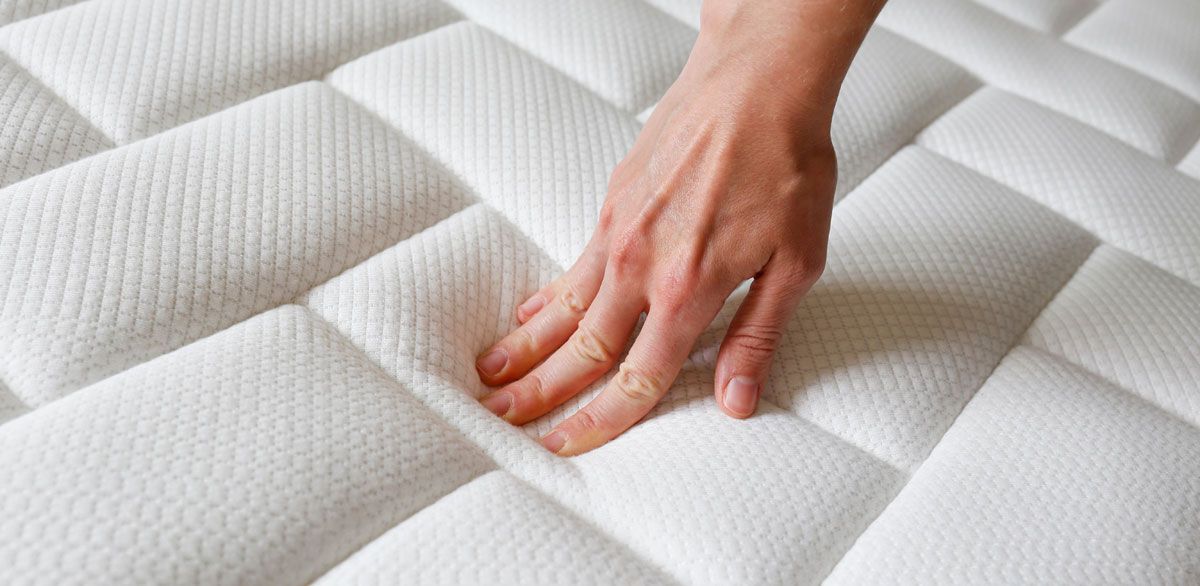
Mattress sellers focus a lot on how mattress design, layers, and material quality affect sleep. And for good reason; your mattress is the foundation of a restful night. But even the best mattress can’t do all the work alone. If your sleep environment is poorly set up, it can sabotage your comfort and leave you tossing and turning despite investing in a top-tier bed.
At Twilight Bedding, we help our customers choose the right mattress based on their sleep style, pressure points, and body type. But we also know that a good night’s sleep depends on more than just the mattress. Elements like room layout, air circulation, bedding, and lighting all play critical roles. If even one of them is off, it could undermine your sleep, no matter how perfect your mattress is.
Rethinking Room Layout and Bed Placement
Is your bed positioned in a way that welcomes restful sleep? Beds placed directly under windows may be hit with unwanted sunlight, noise or chilly drafts. Sleeping directly next to a heating or cooling vent can make it difficult to maintain a steady temperature, leading to disrupted rest. And clutter around the bed can subtly contribute to mental stimulation and stress.
Try placing your bed away from direct airflow and windows, and use blackout curtains if you’re bothered by morning sun. A simple rearrangement can make the room feel more peaceful and give your mattress the best chance to support your body without outside distractions interfering.
Bedding That Doesn’t Work With You
Even if your mattress is built for comfort and support, low-quality or mismatched bedding can throw everything off. Scratchy sheets, stuffy comforters, and flat or overly firm pillows can cancel out the benefits of a well-made mattress. Bedding that traps heat or doesn’t breathe properly can leave you sweating through the night.
The best sleep setup includes breathable materials like cotton, linen, or bamboo. Lightweight comforters are ideal for warmer seasons, while heavier duvets can be layered for cold nights. Don’t overlook pillow quality either. An unsupportive pillow can strain your neck and upper spine, regardless of how good your mattress is.
Airflow and Ventilation
Many people don’t realize how much air movement affects sleep. Stagnant air can make your bedroom feel warmer, more humid, or simply uncomfortable. Poor ventilation can also lead to a buildup of allergens or stale air, especially in well-insulated homes.
Using a ceiling fan or a small circulating fan can help keep air moving and support your body’s natural cooling system. If your mattress is breathable, like the latex and hybrid options we offer at Twilight Bedding, proper airflow will enhance its benefits even further. You can also try opening a window during Spokane’s cooler nights to let in fresh air and reduce stuffiness.
Managing Humidity and Dryness
Depending on the time of year, Spokane homes can swing between dry indoor air in winter and higher humidity in summer. Either extreme can affect your sleep quality. High humidity can make you feel clammy and restless, while dry air can lead to irritated sinuses and dry skin.
If the air feels damp, a small dehumidifier can make the room more comfortable. During drier months, a humidifier helps add moisture back into your indoor air, so you don’t wake up with a scratchy throat or dry nose. The right balance supports both your comfort and the longevity of your mattress.
Light and Circadian Rhythms
Light exposure directly affects your body’s circadian rhythm, which controls your sleep-wake cycle. If your room gets early sunlight or if there are glowing electronics nearby, your brain may stay alert longer than it should.
Blackout curtains are a simple way to keep your room dark until you're ready to wake up. Avoid using overhead lights in the hour before bedtime and opt for soft, warm lamps instead. If screens are part of your evening routine, consider dimming them or switching to night mode to reduce blue light exposure.
The Noise Factor
Even a quiet mattress won’t make up for a loud room. Street sounds, barking dogs, noisy neighbors or even a partner’s snoring can fragment your sleep cycle and prevent you from reaching the deep, restorative stages of rest.
If noise is a regular issue, try introducing white noise from a fan or a dedicated sound machine. Thick curtains or rugs can help absorb sound in echo-prone rooms. And if you’re especially sensitive, high-quality earplugs might make all the difference.
Put Your Mattress in the Best Position to Succeed
Our mattress experts at Twilight Bedding aren’t in the business of redesigning bedrooms to optimize sleep quality, but we do excel at manufacturing and customizing innerspring and latex mattresses to ensure a low-quality mattress is never contributing to poor sleep health or sore mornings.
Contact our North Spokane showroom at (509) 413-2431 or our Spokane Valley showroom at (509) 926-2333 to learn more about our breathable, supportive mattresses, or visit us in person and get expert advice on mattress selection and customization.






